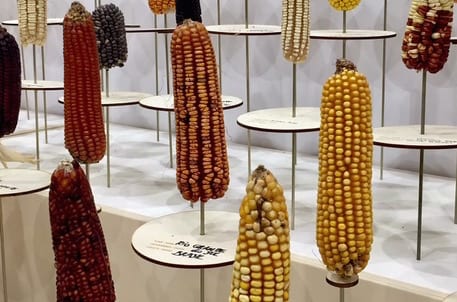Words and Photos by Carla Capalbo
“Climate change – and global warming – are the biggest thing that has ever happened in human history”, said Amitan Ghosh during Terra Madre – Salone del gusto 2018 (read more about it here).
What are some of the solutions proposed at Terra Madre? Returning to low-impact ancestral methods of crop cultivations that don’t impact so negatively on the soils. Banning poisonous pesticides and weedkillers, and of course monocultures of genetically modified and sterile seeds. Eating more plants and definitely much less meat. (Indeed, the hope is to reduce the west’s consumption of meat by 50%). Use crops that have natural resistance to heat and scarcity of water rather than those that need constant irrigation in areas with limited water resources. Fonio, a forgotten ancient grain from sub-Saharan Africa, is such an ingredient, and has become the project of chef Pierre Thiam in New York who sees it as one of the nutritional super-foods of the future.




Articoli correlati
Cose che non sapevi di voler leggere



